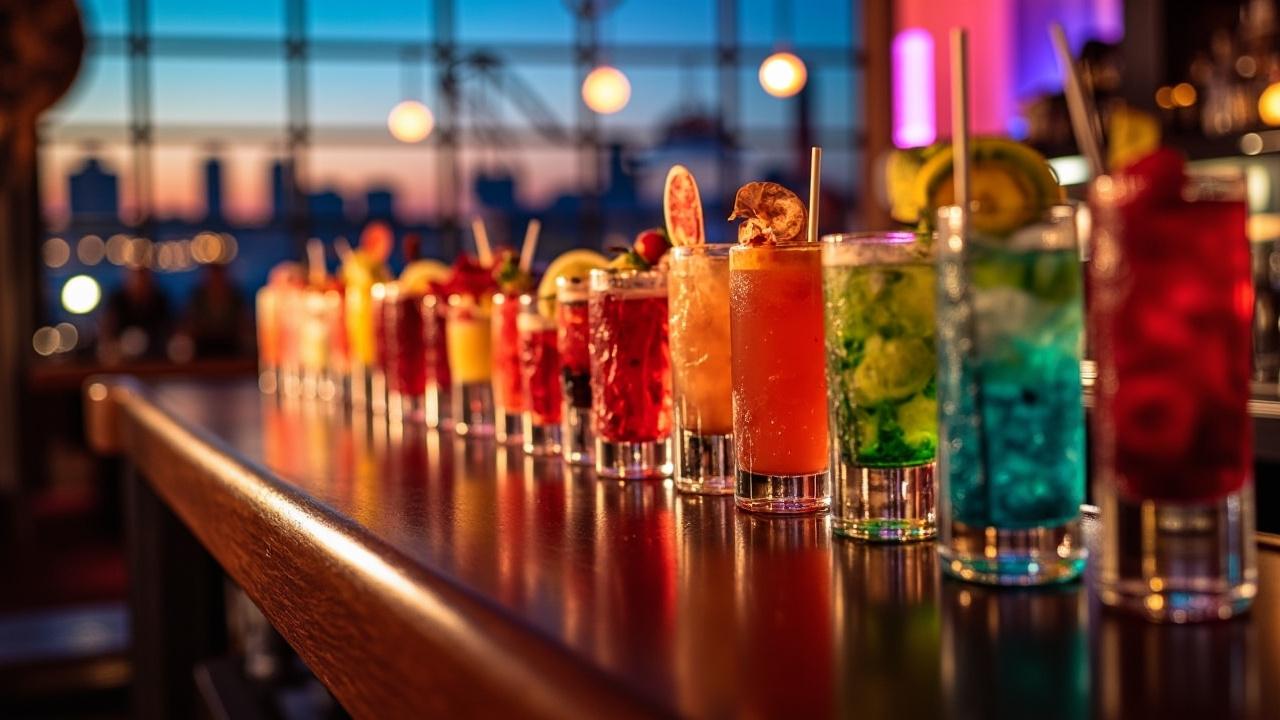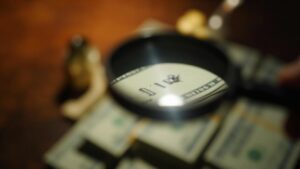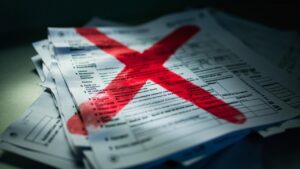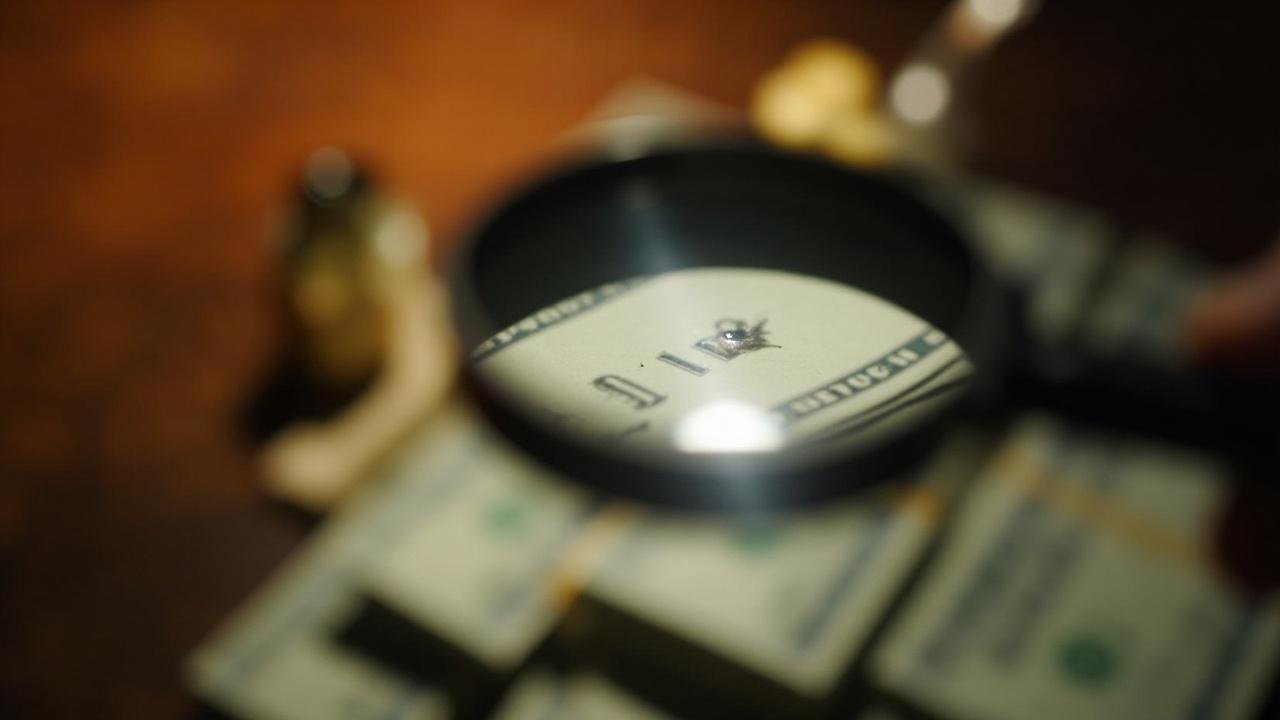Introduction
That “one too many” in long beach public intoxication can quickly turn a fun night out into a legal headache. Imagine this: you’re enjoying the vibrant atmosphere of Pine Avenue, perhaps a little too enthusiastically, and suddenly find yourself facing arrest for public intoxication.
It’s a scenario that plays out far too often in Long Beach, a city known for its lively nightlife and popular tourist destinations. But what exactly constitutes public intoxication, and what are your rights if you find yourself in this situation?
This blog post aims to shed light on the often-misunderstood laws surrounding public intoxication in Long Beach. We will explore California Penal Code 647(f), the statute that governs these cases, breaking down its key elements and explaining what the prosecution must prove to secure a conviction. It’s crucial to understand that simply being drunk in public isn’t enough; the law requires more.
Were you truly unable to care for your own safety, or were you obstructing a public way? These are vital questions that can determine the outcome of your case.
Navigating the legal system can be daunting, especially when facing a charge like public intoxication. This article will provide valuable insights into potential defenses you can raise, the possibility of plea bargaining, and even the option of expunging the charge from your record down the line.
We’ll also delve into specific areas of Long Beach where enforcement is particularly stringent, so you can be aware of the risks and exercise extra caution. Understanding your rights and the available legal options is the first step toward protecting your future.
Defining Public Intoxication in California (PC 647(f))
California Penal Code 647(f) is the specific statute that addresses public intoxication, also known as disorderly conduct due to intoxication. It’s crucial to understand this law to navigate situations where you or someone you know might be facing charges.
The statute aims to prevent individuals who are incapacitated by alcohol or drugs from endangering themselves or others in public spaces. However, it’s not as simple as just being drunk in public; there are specific elements that must be proven for a conviction.
The law has key parts that the prosecution must prove beyond a reasonable doubt. These include the element of intoxication, whether through alcohol or drugs, and crucially, that as a result of that intoxication, the person is unable to care for their own safety or the safety of others. This could manifest as an inability to walk without assistance, being incoherent, or exhibiting behavior that poses a danger to themselves (like wandering into traffic) or to those around them.
Another key element is whether the individual is obstructing public streets, sidewalks, or other public areas. Someone passed out on a park bench or blocking a public right-of-way could be considered in violation of this aspect of the law. The specifics of these elements are important when considering long beach public intoxication arrests.
It’s vitally important to understand that simply appearing drunk in public isn’t enough to be convicted under PC 647(f). The prosecution must demonstrate both intoxication *and* the inability to care for oneself or obstruction of a public way. Some examples of public areas include, but are not limited to:
Therefore, the inability to care for one’s safety or the obstruction element is paramount for a conviction under California Penal Code 647(f).
Specific Hotspots and Increased Enforcement
Long Beach, with its vibrant nightlife and bustling tourist scene, presents certain areas where the likelihood of encountering law enforcement regarding public intoxication is notably higher. These hotspots are often characterized by a confluence of factors that contribute to increased police presence and stricter enforcement of long beach public intoxication laws. Understanding these locations can help residents and visitors alike exercise greater caution and avoid potential legal trouble.
Several locations within Long Beach are known for heightened scrutiny regarding public intoxication:
- Pine Avenue: This downtown thoroughfare is packed with bars and restaurants, making it a popular destination for evening entertainment. The high concentration of people consuming alcohol naturally leads to a greater risk of public intoxication, prompting increased police patrols.
- The Pike Outlets: Adjacent to the waterfront, the Pike Outlets attract a large number of tourists and locals alike. The presence of entertainment venues and restaurants with liquor licenses contributes to an environment where public intoxication can occur more frequently.
- Belmont Shore: This beachside community boasts a lively commercial district with numerous bars and restaurants. Its popularity as a weekend destination means that law enforcement is often more vigilant in monitoring public intoxication.
- Areas Around Major Events: Large-scale events such as the Grand Prix, concerts, and festivals draw massive crowds to Long Beach. The consumption of alcohol is often prevalent at these events, leading to increased enforcement of public intoxication laws in the surrounding areas.
The reasons for increased enforcement in these areas are multifaceted. High foot traffic naturally increases the visibility of potential public intoxication offenses. The potential for disturbances and public safety concerns rises with the number of intoxicated individuals.
Moreover, the presence of tourism adds another layer, as authorities seek to maintain a safe and welcoming environment for visitors. Therefore, even if you believe you are acting responsibly, exercising extra vigilance in these hotspots is advisable. Be aware of your surroundings, monitor your alcohol consumption, and ensure you have a safe plan to get home.
The Consequences
After an arrest for being under the influence in Long Beach, several consequences can unfold. The immediate aftermath involves being taken into custody by law enforcement. Individuals can expect to be transported to a local detention facility, where they will be processed and held until they are sober enough to be released.
The duration of this detention varies, but it typically lasts until the individual is no longer a danger to themselves or others. This process can be disorienting and stressful, especially for those unfamiliar with the legal system.
The penalties for a public intoxication conviction, while often considered minor, can still have a significant impact. A conviction under California Penal Code 647(f) is typically a misdemeanor, carrying potential fines. While jail time is uncommon for first-time offenders, it remains a possibility, especially if there are aggravating circumstances, such as repeated offenses or resisting arrest. The fines associated with a conviction can accumulate, adding financial strain.
Beyond the immediate legal penalties, a conviction for long beach public intoxication can create lasting collateral consequences. Having a criminal record, even for a seemingly minor offense, can affect employment opportunities, housing options, and even travel plans. Some employers conduct background checks, and a public intoxication conviction may raise concerns about an applicant’s judgment or reliability.
Landlords may also be hesitant to rent to someone with a criminal record. Furthermore, depending on the circumstances, there’s also the potential for a “wet reckless” charge if driving was involved, which carries far more serious penalties than public intoxication alone.
| Consequence | Details |
|---|---|
| Arrest and Detention | Transport to local detention facility until sober. |
| Fines | Potential financial penalties associated with the misdemeanor conviction. |
| Criminal Record | Potential impact on employment, housing, and travel. |
Common Defenses to a Public Intoxication Charge
One of the most direct defenses against a public intoxication charge rests on disputing the level of inebriation itself. The prosecution must prove beyond a reasonable doubt that you were intoxicated to the point of being unable to care for yourself or others, or that you were obstructing a public way. It’s possible to argue that perceived signs of intoxication were actually symptoms of a medical condition such as diabetes, a head injury, or a reaction to medication.
Perhaps the officer misinterpreted a stumble due to uneven pavement as a sign of impaired motor skills, or slurred speech due to a dental issue as a result of alcohol consumption. Evidence such as witness statements, medical records, or even video footage can be used to support this defense.
Another strong defense centers on the element of self-care and public safety. Even if some level of intoxication is admitted, the prosecution still has to prove that the individual was incapable of caring for themselves or others, or was obstructing a public area. A skilled attorney can argue that the individual, despite having consumed alcohol, was still aware of their surroundings, able to communicate effectively, and capable of making responsible decisions.
Perhaps they were waiting for a ride, had a designated driver, or were simply sitting quietly on a bench. Eyewitness testimony from friends, family, or even strangers can be crucial in demonstrating the individual’s ability to maintain their safety and the safety of those around them. The ability to present clear and convincing evidence that challenges this specific element is a key component to fighting a charge of long beach public intoxication.
A third potential defense focuses on location. California law specifically defines what constitutes a “public place.” If the incident occurred on private property, even if visible from the street, it might not meet the legal definition of public intoxication. For instance, being intoxicated on the porch of a private residence, even if the porch is visible from the sidewalk, could be argued as not being a violation of PC 647(f).
Similarly, if an individual was arrested inside a private establishment like a bar or restaurant, but had not yet ventured onto a public street or sidewalk, this could form the basis of a strong defense. Furthermore, the legality of the arrest itself can be challenged if there was a lack of probable cause.
For example, if the officer did not have reasonable suspicion to stop and question the individual in the first place, any evidence obtained as a result of that stop could be deemed inadmissible in court.
| Defense | Description | Supporting Evidence |
|---|---|---|
| Lack of Intoxication | Arguing that the individual was not actually intoxicated, or that symptoms were caused by a medical condition. | Medical records, witness statements, video footage. |
| Ability to Care for Oneself | Demonstrating that the individual, despite being intoxicated, was capable of maintaining their own safety and the safety of others. | Eyewitness testimony, designated driver information. |
| Private Property | Arguing that the incident occurred on private property and not in a public place. | Property deeds, witness statements, location evidence. |
| Unlawful Arrest | Challenging the legality of the arrest itself (e.g. lack of probable cause). | Police reports, witness statements. |
Plea Bargaining
One common objective of plea bargaining in a long beach public intoxication case is to reduce the charge. For example, a misdemeanor charge of public intoxication (PC 647(f)) could potentially be reduced to an infraction, which carries a much lower fine and does not result in a criminal record. Another possibility is alternative sentencing.

Instead of jail time or hefty fines, the agreement might involve community service hours or enrollment in an alcohol education program. Successfully completing these programs can demonstrate a commitment to responsible behavior, which can be favorable in the eyes of the court.
It’s important to remember that the strength of your defense plays a significant role in the plea bargaining process. A skilled attorney will assess the evidence against you, identify any weaknesses in the prosecution’s case, and leverage those weaknesses to negotiate the best possible outcome. Perhaps there’s a lack of clear evidence proving you were actually intoxicated, or maybe the circumstances surrounding the arrest suggest a violation of your rights.
These are crucial points your attorney will use to advocate for a reduced charge or even a dismissal of the case altogether. Without an attorney advocating on your behalf, navigating the plea bargaining process can be daunting and may result in less favorable outcomes.
Expungement
In California, even a seemingly minor offense like a public intoxication charge can leave a lasting mark on your record. Fortunately, the law provides a pathway to clear your name through a process called expungement. This allows you to petition the court to have the record of your conviction sealed, essentially removing it from public view. Successfully expunging a long beach public intoxication arrest can significantly improve your future prospects.
Eligibility Requirements for Expungement
Not everyone is automatically eligible for expungement. Several requirements must be met before a court will grant your petition. First, you must have successfully completed all the terms of your probation, including any fines, community service, or alcohol education classes. If you violated your probation, you may still be eligible, but it will be more challenging and require demonstrating that you have since rehabilitated and are living a law-abiding life.
Furthermore, you cannot be currently facing any new criminal charges. The court will review your entire criminal history to ensure you are a suitable candidate for expungement. The purpose is to give people a second chance, not to shield ongoing criminal activity.
The Expungement Process
The expungement process involves several steps. First, you must obtain the necessary forms from the court where you were convicted. These forms require you to provide detailed information about your arrest, conviction, and compliance with probation. Once the forms are completed, you must file them with the court and serve a copy on the Long Beach City Prosecutor’s office, who will have an opportunity to oppose your petition.
The court will then set a hearing date. At the hearing, the judge will consider your petition, any opposition from the prosecutor, and any other relevant evidence. If the judge is satisfied that you have met the eligibility requirements and that expungement is in the interest of justice, they will grant your petition and order the record of your conviction to be sealed.
Benefits of Expungement
The benefits of expunging a public intoxication conviction are numerous. Perhaps the most significant benefit is that it allows you to truthfully answer “no” to questions about prior convictions on job applications, housing applications, and other important documents. This can open doors to opportunities that would otherwise be closed off due to your criminal record.
Expungement can also improve your eligibility for professional licenses and reduce the stigma associated with having a criminal record. It’s important to note that expungement does not completely erase the record; it may still be visible to law enforcement and certain government agencies. However, for most practical purposes, expungement provides a fresh start and allows you to move forward with your life without the burden of a past mistake.
The Importance of Legal Representation When Facing Long Beach Public Intoxication Charges
Navigating the legal system after an arrest for public intoxication can be incredibly daunting. The complexities of the law, coupled with the potential consequences, make it crucial to have someone on your side who understands the nuances of the Long Beach legal landscape. This is where a skilled criminal defense attorney specializing in public intoxication cases becomes invaluable. They act as your advocate, ensuring your rights are protected and guiding you through each step of the legal process.
One of the most significant benefits of hiring an attorney is their ability to thoroughly investigate the facts of your case. They’ll gather evidence, interview witnesses, and analyze police reports to identify any weaknesses in the prosecution’s case. For example, they might uncover inconsistencies in the officer’s testimony or find evidence that challenges the claim that you were a danger to yourself or others.
This detailed investigation can be the key to building a strong defense and achieving a favorable outcome. Furthermore, an experienced attorney understands the local court system and the tendencies of the Long Beach City Prosecutor’s office, enabling them to anticipate the prosecution’s strategies and develop effective counter-arguments.
Beyond investigation, a lawyer is a skilled negotiator. They can engage with the prosecution to explore potential plea bargains, such as reduced charges or alternative sentencing options like community service or alcohol education classes.
An attorney’s understanding of the law and their established relationships with local prosecutors can significantly increase the chances of a positive outcome, potentially minimizing the long-term impact of a long beach public intoxication arrest on your record and future. Having an experienced advocate argue on your behalf demonstrates to the prosecution that you are taking the charges seriously and are prepared to fight for your rights.
Prevention Is Key
Long Beach boasts a vibrant nightlife, but enjoying it responsibly is crucial to avoid unwanted encounters with the law. Prevention is undoubtedly the best strategy when it comes to public intoxication. Before heading out for an evening of fun, consider establishing a plan. Designate a sober driver or arrange for alternative transportation like a ride-sharing service or public transit. Knowing how you’ll get home safely *before* you start drinking eliminates the temptation to make poor decisions later.
It’s easy to get caught up in the excitement, but pacing yourself is essential. Alternate alcoholic beverages with water or other non-alcoholic drinks to stay hydrated and slow down alcohol absorption. Be mindful of the strength of your drinks and avoid accepting drinks from strangers. Explore the non-alcoholic options available at many Long Beach establishments.
Mocktails are becoming increasingly popular and offer a delicious and festive alternative to alcoholic beverages. Remember, having fun doesn’t require excessive drinking. Avoiding long beach public intoxication charges can be easily done by knowing your limits.
Stick Together and Look Out for Each Other
Never leave your friends unattended, especially if they’ve had too much to drink. Stay together as a group and watch out for one another’s well-being. If you notice a friend is becoming overly intoxicated, encourage them to slow down or switch to water.
Help them get home safely or call a ride-sharing service for them. By looking out for each other, you can ensure everyone has a fun and safe night out in Long Beach, free from the potential legal consequences of public intoxication.
Conclusion
Facing a public intoxication charge in Long Beach doesn’t have to define your future. Understanding the intricacies of California Penal Code 647(f), recognizing potential defenses, and knowing your rights are the first steps toward navigating this challenging situation. Remember, simply being intoxicated in public is not sufficient grounds for a conviction.
The prosecution must prove you were unable to care for your own safety or the safety of others, or that you were obstructing public access. If you find yourself arrested for *long beach public intoxication*, don’t hesitate to take action.
The information shared throughout this blog post highlights the significance of understanding the law, exploring potential defenses, and recognizing the advantages of having legal representation. While this article serves as a guide to empower you with knowledge, every case has unique elements and circumstances that demand personalized attention.
Don’t underestimate the potential repercussions of a public intoxication charge on your record and future opportunities. A criminal record, even for a seemingly minor offense, can create hurdles when applying for jobs, housing, or even traveling.
If you or someone you know has been arrested for public intoxication in Long Beach, seeking guidance from a qualified attorney is essential. A skilled legal professional can thoroughly investigate the details of your case, negotiate with the prosecution on your behalf, and advocate for the best possible outcome.
They can also help you navigate the process of expungement, if applicable, to clear your record and safeguard your future. Contact an attorney immediately to protect your rights and begin building a strong defense.
Frequently Asked Questions
What constitutes public intoxication in Long Beach?
Public intoxication in Long Beach generally involves being under the influence of alcohol or drugs to the point where you are unable to care for your own safety or the safety of others, or where you are interfering with or obstructing the free use of public streets, sidewalks, or other public areas.
It essentially boils down to being visibly drunk or high in public and posing a danger to yourself or others due to your condition.
What are the potential penalties for public intoxication in Long Beach?
The potential penalties for public intoxication in Long Beach can vary depending on the specific circumstances, but they often include fines. A person could also be detained in a sobering center or jail cell until they are no longer a danger to themselves or others. Repeat offenses may lead to harsher penalties.
Can I be arrested for public intoxication in Long Beach?
Yes, you can be arrested for public intoxication in Long Beach. Law enforcement officers have the authority to take individuals into custody if they are found to be publicly intoxicated and unable to care for themselves or others, or if they are causing a disturbance. The intention is often to ensure the safety of the individual and the public.
What is the legal blood alcohol content (BAC) limit for public intoxication in Long Beach?
There is no specific legal blood alcohol content (BAC) limit that automatically defines public intoxication in Long Beach. Instead, the determination is based on observable behavior and the individual’s ability to care for themselves or avoid endangering others. While BAC might be a factor considered by law enforcement, it’s not the sole determining factor.
If I’m arrested for public intoxication in Long Beach, will it go on my criminal record?
If you are arrested for public intoxication in Long Beach, it will likely result in a record of the arrest. Whether or not it appears as a criminal conviction on your record depends on the specific outcome of the case.
If you are formally charged and convicted, then it will appear on your criminal record. Often these charges will be dismissed after a period of good behavior, or some other probationary period.









